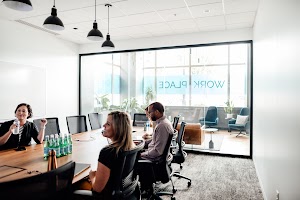Any SEO expert knows you need to stay in the good graces of Google in order to maintain positive page ranking and a good reputation. The last thing you need to do is incur a Google penalty, whether it’s by your own gray or black hat doings or a relationship with someone else who uses shady tactics.
When Google does decide to punish it can be something as minor as a temporary drop in rankings or a major hit like an all-out ban. It should be obvious that any type of penalty is bad for business, both for the SEO company and its customers.

Assuming a webmaster only uses white hat practices there should be no penalty problems as long as he or she pays attention to those they do business with. The following are some signs to look for that may indicate a Google penalty:
- Traffic Analytics – When you are looking into traffic analytics, you are looking for sudden drops or specific trends that would indicate something unusual. If traffic has consistently been rather high, simply adding new content should not cause a drastic drop off. Such changes are usually a sign of a Google penalty.
- Omitted Results – Whenever you search any keywords on Google, there are certain number of omitted results due to duplicate content. Many webmasters incur this penalty without even trying. If you think you may have been hit by the duplicate content penalty, you should be able to find your site among the omitted results.
- Look for Bad Neighborhoods – You may be doing everything within your power to use only white hat practices. At the same time, some of your links or embedded objects may be tied to bad neighborhoods. Check your code to make sure it isn’t so. If it is, you are better off severing ties with those bad neighborhoods.
- Blacklisting – If Google has blacklisted your website as being unsafe, you have been penalized one way or the other. It might be because the site has been infected with some nefarious code or because it has been linked to another blacklisted site. In either case, a blacklisting needs to be dealt with immediately because it can affect your entire domain and any others WHOIS had listed with the same owner.
- Long Phrase Search – If you copy a very long and unique phrase from your website and search it on Google, it is obvious the results should show you at the top. If not, it is quite likely you have incurred some sort of penalty. Make sure the phrase is unique enough that it probably will not be found on other pages within the same site.
The Duplicate Content Issue
With its latest round of updates, Google has really focused heavily on the quality of content. Meeting requirements for this new update starts with avoiding duplicate content. This is not good news for content farms that love to take an article and spin it a million times, but it is good for webmasters and SEO companies interested in quality over quantity.
Along those same lines, it is also important to remember relevance. Google is being very particular about filtering out content that has been put together with no thought of relevance or usefulness. Relevant supplies to both subject matter and links.
Webmasters that want to succeed would do well to not look at Google as the enemy, but rather a friend trying to ensure only worthwhile websites get the high-ranking they deserve. If you learn what makes Google tick, it is a lot easier to maintain high page rankings without penalties.















